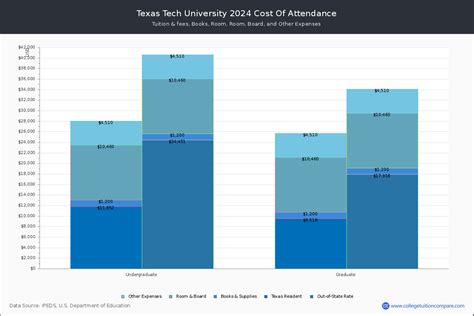Navigating the financial aspects of higher education can be daunting, especially when it comes to understanding tuition costs. Texas Tech University, a renowned research university in Lubbock, Texas, offers a range of academic programs with varying tuition rates. This guide provides a comprehensive overview of Texas Tech University’s tuition expenses for the 2023-2024 academic year, empowering prospective students to make informed decisions about their financial future.

Tuition Rates for Undergraduate Programs
Undergraduate tuition at Texas Tech University is primarily determined by a student’s residency status. Texas residents and non-residents pay different tuition rates, with out-of-state students typically paying a higher amount.
Resident Tuition
- Per Semester: \$5,188
- Per Year: \$10,376
Non-Resident Tuition
- Per Semester: \$14,358
- Per Year: \$28,716
Tuition Rates for Graduate Programs
Texas Tech University offers a wide range of graduate programs, including master’s, doctoral, and professional degrees. Tuition rates for graduate programs vary depending on the specific program and the student’s residency status.
Resident Tuition
- Master’s Programs: \$8,262 per semester
- Doctoral Programs: \$10,306 per semester
Non-Resident Tuition
- Master’s Programs: \$16,548 per semester
- Doctoral Programs: \$20,314 per semester
Additional Fees and Expenses
In addition to tuition, students should also budget for additional fees and expenses associated with attending Texas Tech University. These may include:
- Application Fee: \$60
- Housing and Meal Plans: \$9,150 – \$15,220 per year (on-campus)
- Transportation: \$1,500 – \$3,000 per year (estimated)
- Books and Supplies: \$1,000 – \$2,000 per year (estimated)
- Health Insurance: \$2,000 – \$3,000 per year (estimated)
Ways to Reduce Tuition Costs
Understanding tuition costs is crucial, but it’s equally important to explore strategies to reduce expenses. Here are some tips for prospective students:
- Apply for Financial Aid: Texas Tech University offers various financial aid options, including scholarships, grants, and loans. Explore these avenues to potentially offset tuition costs.
- Consider On-Campus Jobs: Part-time employment on campus can supplement your income and reduce the financial burden.
- Take Advantage of In-State Tuition: Texas residents pay significantly lower tuition rates than non-residents. If possible, consider establishing residency in Texas to qualify for in-state tuition.
- Negotiate with the University: If you have strong academic credentials or extenuating circumstances, you may be able to negotiate tuition rates with the university.
Frequently Asked Questions
Q: What is the average tuition cost for undergraduate programs at Texas Tech University?
- A: The average tuition cost for undergraduate programs is \$10,376 per year for Texas residents and \$28,716 per year for non-residents.
Q: How can I estimate the total cost of attendance for graduate programs?
- A: To estimate the total cost of attendance for graduate programs, add the tuition costs to the additional fees and expenses, such as housing, meals, books, and transportation.
Q: Does Texas Tech University offer any discounts for multiple semesters or years?
- A: Yes, Texas Tech University offers tuition discounts for students who enroll in multiple semesters or years of graduate study.
Q: What is the deadline for applying for financial aid?
- A: The priority deadline for applying for financial aid is March 15th. However, students are encouraged to apply earlier to increase their chances of receiving scholarships or grants.
Conclusion
Texas Tech University offers a wide range of academic programs with varying tuition rates. Understanding the financial implications of attending Texas Tech University is essential for prospective students. By exploring tuition rates, fees, and potential cost-saving strategies, students can make informed decisions about their financial future. Remember, investing in a quality education is an investment in your long-term success.
